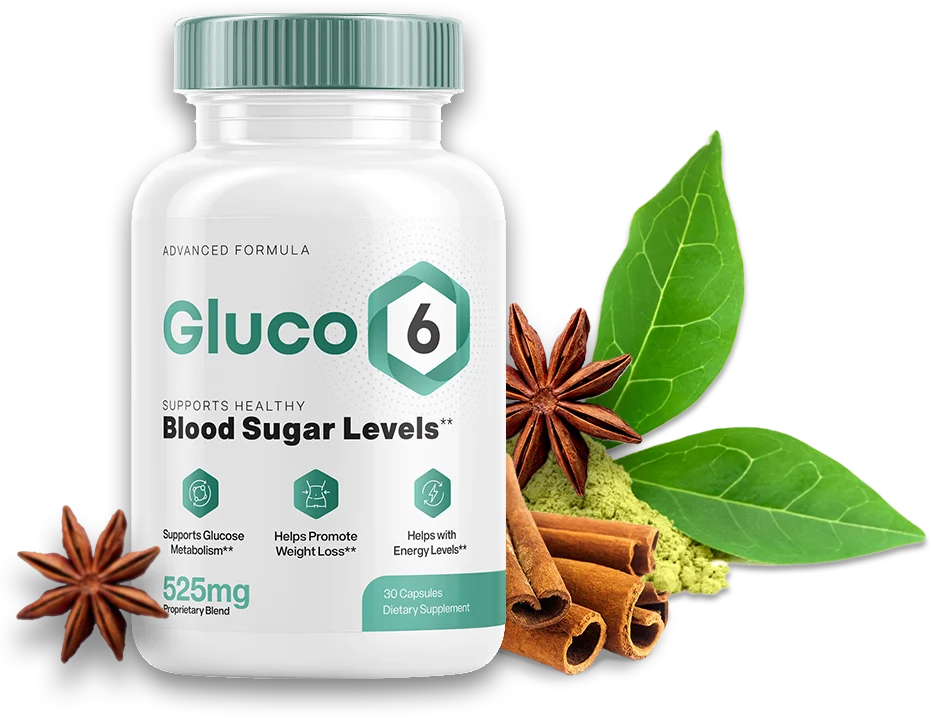Can Diabetes Be Reversed? Effective Strategies to Manage and Potentially Overcome It
Is it possible to reverse type diabetes? This question sparks hope for millions managing this chronic condition. While a complete cure may not exist, research shows that remission is achievable with the right strategies.
Studies from England highlight that significant weight loss, particularly through a very low-calorie diet, can help restore normal blood sugar levels. Early intervention plays a crucial role in this process, making timely action essential.
Managing type diabetes often involves lifestyle changes like healthier eating, regular exercise, and monitoring blood levels. These adjustments can reduce reliance on medication and improve overall health.
Understanding the difference between remission and a cure is vital. Remission means maintaining normal blood sugar levels without medication, but ongoing care is necessary to sustain progress.
Key Takeaways
- Remission of type diabetes is possible with significant weight loss.
- Early intervention increases the chances of restoring normal blood sugar levels.
- Lifestyle changes like diet and exercise are key to managing the condition.
- Remission is not a cure but requires ongoing effort to maintain.
- Consulting a doctor is essential for personalized guidance.
Table of Contents
The Science Behind Diabetes and Remission
Understanding the science behind diabetes can empower you to take control of your health. This condition is not just about high sugar levels; it involves complex interactions between your body’s systems. By breaking it down, you can better grasp how to manage or even reverse it.
Understanding Diabetes: Type 1 vs. Type 2
Diabetes comes in two main forms: Type 1 and Type 2. Type 1 is an autoimmune condition where the body attacks insulin-producing cells in the pancreas. This means you’ll need external insulin to regulate your glucose levels.
On the other hand, Type 2 involves insulin resistance. Your body produces insulin, but cells don’t respond effectively. Over time, this can lead to higher sugar levels and a need for medication or lifestyle changes.
Physiological Mechanisms of Blood Sugar Control
Your pancreas plays a key role in managing glucose. It produces insulin, which helps cells absorb sugar for energy. When this process falters, blood sugar levels rise, leading to complications.
Weight loss can improve insulin sensitivity, making it easier for your body to regulate glucose. Studies show that shedding excess fat, especially around the liver and pancreas, can restore normal function.
While medication helps manage symptoms, understanding these natural mechanisms is crucial. It allows you to make informed decisions about your health and explore remission possibilities.
Can Diabetes Go Away: Exploring Remission and Reversal
Achieving remission for type 2 diabetes is a realistic goal with the right approach. While it’s not a cure, remission means maintaining normal blood glucose levels without medication for at least three months. This milestone is possible through significant lifestyle changes and sustained effort.
Defining Remission and Its Challenges
Remission is often misunderstood. It doesn’t mean the disease is gone forever. Instead, it reflects a period where your body functions normally without external help. For many, this involves restoring the pancreas’s ability to produce insulin effectively.
However, challenges remain. Maintaining remission requires ongoing attention to diet, exercise, and blood glucose monitoring. Even small slip-ups can lead to a return of symptoms. This is why a multidisciplinary approach, including regular check-ups, is essential.
What It Really Means for Your Health
Remission offers significant health benefits. It reduces the risk of complications like heart disease and nerve damage. For some, it can even reverse damage to the pancreas caused by excess weight or poor lifestyle habits.
But it’s not a one-time achievement. Studies show that remission can last for years, but only with consistent effort. The longer you’ve had the disease, the harder it may be to achieve and sustain remission. Early intervention is key.
Intensive dietary changes, such as low-calorie diets, can improve insulin production and sensitivity. Combining these with regular physical activity enhances results. Even surgery, like bariatric procedures, has shown promise in achieving remission for some individuals.
Ultimately, remission is a journey, not a destination. It requires commitment, but the rewards for your body and overall health are worth it.
Effective Weight Loss Strategies and Diet Modifications
Diet modifications are a cornerstone for achieving remission in type 2 diabetes. Research shows that structured weight loss plans can significantly improve blood sugar levels and insulin sensitivity. By focusing on the right food choices and caloric intake, you can take meaningful steps toward better health.

Low-Calorie and Intermittent Fasting Diets
Studies highlight the effectiveness of low-calorie diets in achieving remission. For example, consuming between 625-850 calories daily has helped nearly half of participants restore normal sugar levels. This approach reduces fat in the liver and pancreas, improving beta cell function.
Intermittent fasting is another powerful tool. By limiting eating to specific time windows, you can enhance insulin sensitivity and stabilize blood sugar levels. Both methods require commitment but offer promising results when done under professional guidance.
Plant-Based Dietary Approaches
A plant-based diet focuses on whole, nutrient-rich foods like fruits, vegetables, legumes, and whole grains. These choices are high in fiber, which helps regulate sugar levels and promotes weight loss. Research shows that plant-based diets can further enhance insulin sensitivity and reduce the risk of complications.
Incorporating more plant-based meals into your routine doesn’t have to be overwhelming. Start by adding nonstarchy vegetables to half your plate and pairing them with lean proteins and healthy carbohydrates. This simple change can make a big difference.
Here are some practical tips for managing diet modifications:
- Work with a dietitian to create a personalized plan.
- Track your blood sugar levels regularly to monitor progress.
- Gradually reduce calorie intake to avoid drastic changes.
- Focus on whole, unprocessed foods for sustained energy.
- Stay consistent and patient, as results take time.
Remember, achieving remission is a journey. With the right strategies and professional support, you can make lasting improvements to your health.
Role of Exercise and Lifestyle Adjustments
Physical activity plays a vital role in managing blood sugar levels and improving overall health. While exercise alone may not reverse the condition, combining it with dietary changes can significantly enhance your well-being. Research shows that a structured routine boosts insulin sensitivity and aids in weight loss efforts.

Building a Consistent Exercise Routine
Regular exercise improves how your body uses insulin, making it easier to control blood sugar. A balanced routine includes both cardio and strength training. Cardio activities like walking or cycling help burn calories, while strength training builds muscle, which boosts metabolism.
Even modest increases in physical activity can lead to better health metrics. For example, studies show that brisk walking for an hour daily reduces the risk of complications by 34%. Integrating exercise with dietary changes maximizes its impact, helping you achieve long-term success.
Working with your doctor is essential to tailor a safe program. They can assess your needs and recommend activities that suit your lifestyle. Monitoring progress and adapting routines ensures sustained benefits.
Here are some key elements of an effective exercise plan:
- Include at least 150 minutes of moderate cardio weekly.
- Add strength training twice a week to build muscle.
- Track your blood sugar levels to measure progress.
- Combine exercise with a balanced diet for optimal results.
Long-term lifestyle change is crucial for maintaining progress. Regular physical activity not only improves health but also reduces reliance on drugs. With commitment and professional guidance, you can transform your life and achieve better outcomes.
Surgical and Alternative Treatments for Diabetes Management
Exploring surgical and alternative treatments can open new doors for managing high blood sugar levels. For many, these options provide a path to better health and improved quality of life. While lifestyle changes and diabetes medication remain essential, surgical and complementary therapies can offer additional benefits.
Bariatric Surgery and Its Impact on Blood Sugar Levels
Bariatric surgery, including procedures like gastric bypass and sleeve gastrectomy, is a viable option for individuals with obesity and high blood sugar levels. These surgeries not only promote significant weight loss but also improve gut hormone responses, which help regulate sugar levels.
Research shows that many patients achieve remission within days or weeks post-surgery. For example, studies indicate that up to 83% of patients experience remission after gastric bypass. This rapid improvement is often linked to reduced fat in the liver and pancreas, restoring normal insulin production.
However, surgery is not without risks. Potential complications include infections, nutritional deficiencies, and the need for long-term follow-up. A thorough medical evaluation is essential to determine if bariatric surgery is the right choice for you.
The Place of Alternative Therapies and Medications
Alternative therapies, such as guided imagery and biofeedback, can complement traditional treatments. These methods focus on reducing stress and improving mental well-being, which may indirectly help control sugar levels.
While these therapies show promise, they should never replace prescribed diabetes medication. Instead, they can be integrated into your overall treatment plan under professional supervision. For example, guided imagery has been shown to reduce stress, a common symptom that can worsen blood sugar control.
Ongoing consultation with your doctor is crucial when exploring alternative treatments. They can help you safely integrate these methods while monitoring your progress over the year.
Here are some key points to consider:
- Bariatric surgery can lead to rapid improvements in high blood sugar levels.
- Alternative therapies like biofeedback may help manage stress and improve overall health.
- Always consult your doctor before making significant changes to your treatment plan.
- Regular follow-ups are essential to sustain the benefits of surgery or alternative therapies.
Integrating Lifestyle Changes for Long-Term Success
Sustaining long-term health with type 2 diabetes requires a proactive approach. Regular monitoring and collaboration with healthcare professionals are essential to maintain progress and prevent setbacks. By adopting a structured plan, you can achieve lasting results and improve your quality of life.
Monitoring Blood Glucose and Adjusting Medications
Tracking your blood glucose levels is a cornerstone of effective management. Regular testing helps you understand how your body responds to dietary changes, exercise, and medications. Over time, adjustments may be necessary to ensure optimal control.
For example, if your levels remain stable for a least month, your doctor might reduce your medication dosage. Conversely, unexpected spikes may require reevaluating your plan. Staying proactive with monitoring allows you to address issues before they escalate.
Working with Your Healthcare Team
An integrated approach involving dietitians, diabetes specialists, and primary care doctors is key to long-term success. These professionals provide personalized guidance and help you navigate challenges. Regular check-ups ensure your plan remains effective and safe.
Early detection, especially in prediabete stages, can prevent progression. Swift intervention, such as adopting healthier dietary habits, can make a significant difference. Teamwork with your healthcare provider ensures you stay on track and achieve type diabetes remission.
| Strategy | Benefit |
|---|---|
| Regular Blood Glucose Testing | Helps monitor progress and identify issues early |
| Medication Adjustments | Ensures optimal control based on current needs |
| Healthcare Team Collaboration | Provides personalized guidance and support |
| Early Detection | Prevents progression in prediabete stages |
By focusing on these strategies, you can build a foundation for sustained health. Remember, long-term success is a journey that requires commitment and collaboration.
Conclusion
Managing your health with type 2 diabetes involves a combination of strategies that can lead to significant improvements. While a complete cure may not exist, achieving diabetes remission is possible through early intervention and sustained effort. Lifestyle changes like a balanced diet, regular exercise, and monitoring your glucose level are essential.
Emerging treatments, including medications like metformin, are enhancing our understanding of insulin resistance and cellular recovery. Surgical options, such as bariatric procedures, also show promise for long-term success. However, maintaining remission requires ongoing commitment and collaboration with your healthcare team.
By combining these approaches, you can take control of your health and reduce the risk of complications. Stay proactive, stay informed, and work closely with your doctor to create a personalized plan. With dedication, you can achieve lasting improvements and look forward to advancements in treatment options.
FAQ
What is the difference between type 1 and type 2 diabetes?
Type 1 diabetes is an autoimmune condition where the pancreas produces little to no insulin. Type 2 diabetes involves insulin resistance, where the body doesn’t use insulin effectively, often linked to lifestyle factors.
Can type 2 diabetes be reversed?
While type 2 diabetes cannot be cured, it can go into remission through significant weight loss, dietary changes, and consistent exercise. Remission means blood sugar levels stay in a healthy range without medication.
How does weight loss impact blood sugar levels?
Losing weight, especially around the abdomen, improves insulin sensitivity. This helps your body manage blood glucose more effectively, often reducing the need for medication.
What role does diet play in managing diabetes?
A balanced diet low in refined carbs and high in fiber, such as a plant-based or low-calorie diet, can stabilize blood sugar levels. Dietary changes are a cornerstone of diabetes management and remission.
Is exercise important for diabetes control?
Yes, regular physical activity helps lower blood glucose levels, improves insulin sensitivity, and supports weight loss. Aim for at least 150 minutes of moderate exercise per week.
Can bariatric surgery help with diabetes?
Bariatric surgery can lead to significant weight loss and improve blood sugar control, often resulting in remission for some individuals with type 2 diabetes. It’s typically considered for those with severe obesity.
How often should I monitor my blood sugar levels?
Monitoring frequency depends on your treatment plan. Some people check levels multiple times daily, while others may test less often. Work with your doctor to determine the best schedule for you.
What medications are commonly used for diabetes?
Metformin is often the first-line medication for type 2 diabetes. Other options include insulin, sulfonylureas, and newer drugs like GLP-1 receptor agonists. Your doctor will tailor treatment to your needs.
What lifestyle changes are most effective for long-term diabetes management?
Combining a healthy diet, regular exercise, weight management, and consistent blood sugar monitoring is key. Working closely with your healthcare team ensures a personalized and sustainable approach.
Are alternative therapies effective for diabetes?
Some alternative therapies, like acupuncture or herbal supplements, may complement traditional treatments. However, they should not replace proven methods like medication, diet, and exercise.
How useful was this post?
Click on a star to rate it!
Share this article:
Meet Gluco 6
Blood sugar balance supplement
Tired of Type-2 controlling your life or worried that persistent high blood sugar may turn into something worse? Then yes, Gluco6 is right for you.
Gluco6 has already provided amazing blood sugar assistance for men and women in their 30s, 40, 50s and even 80s. Because it was formulated based on cutting-edge science and groundbreaking ingredients, Gluco6 is engineered to rapidly assist even the most erratic blood sugar levels.






